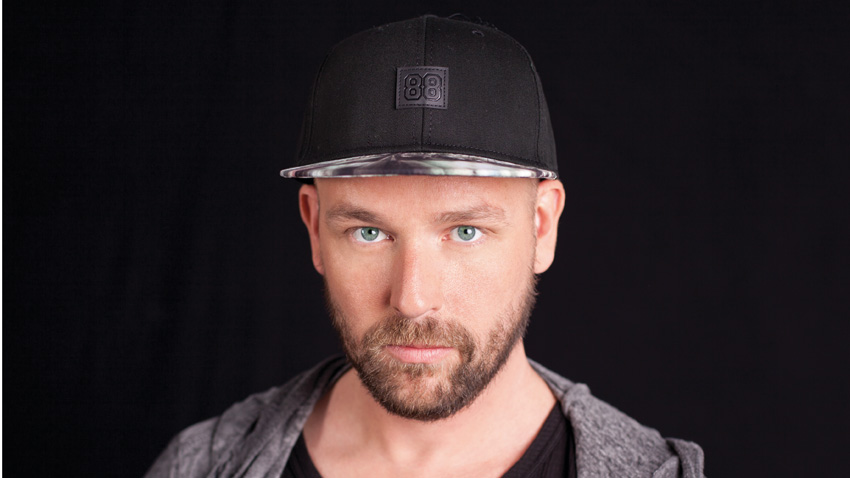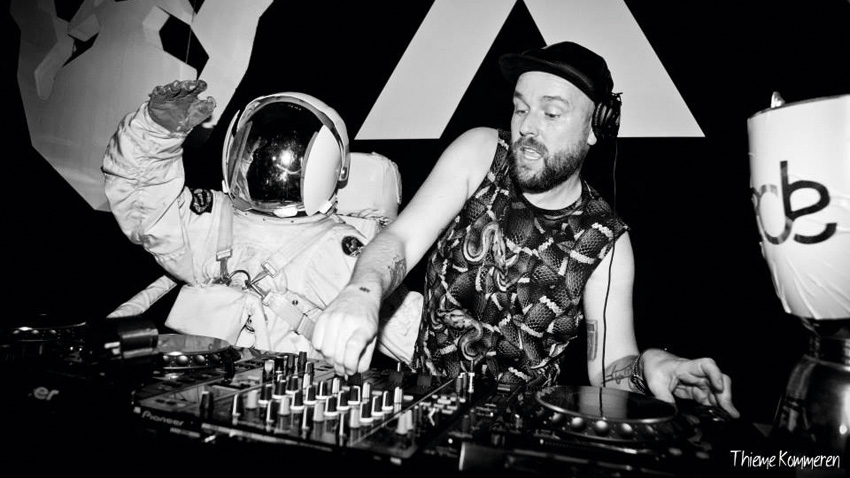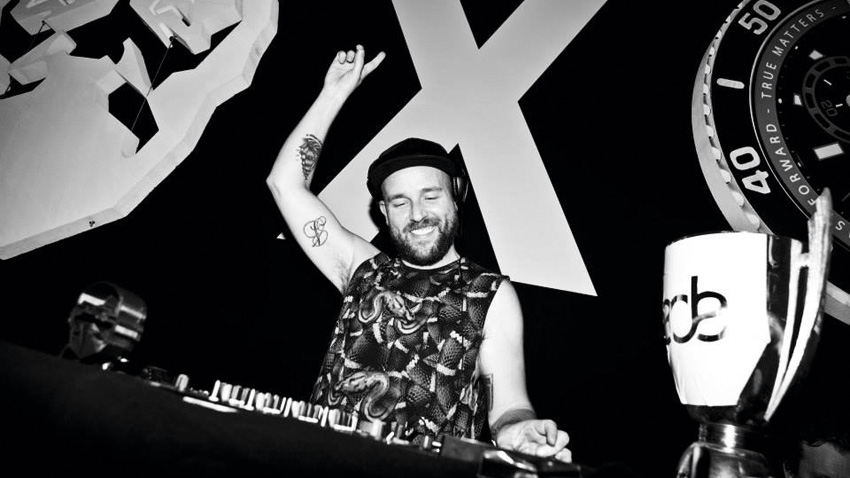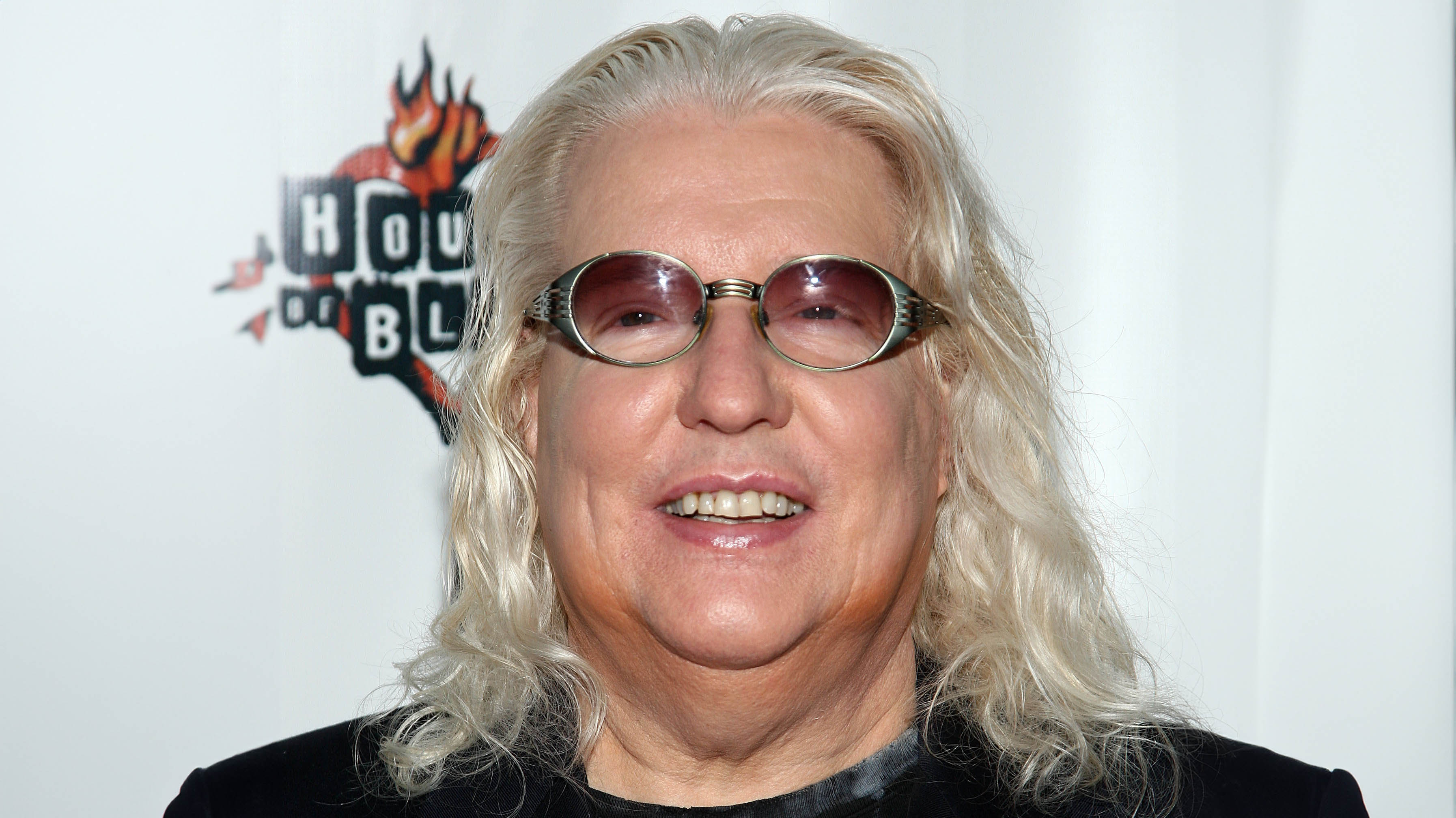Sander Kleinenberg talks production, gear and his 25-year career
"Why do my vocoders never sound as good as Daft Punk? They make it seem so easy, but let me tell you, it's not."

"I won't lie to you," says Sander Kleinenberg, "I'm not the biggest tech geek in the world. I don't know everything there is to know about every compressor or synth on the market. I'm not BT… I'm not Deadmau5. I'm friends with Deadmau5, and when I go to his studio, I kinda feel intimidated because he's so full of technical information! I'm just a guy who throws sounds together and hopes that I find a song in there somewhere."
The Amsterdam-based DJ and producer must be doing something right. He's been throwing sounds together for nearly 25 years and has found more than his fair share of floor-filling songs, like prog house classic My Lexicon and the recent single Can You Feel It - complete with flamethrower vocal from legendary soul singer Gwen McCrae.
"I really enjoyed putting Can You Feel It together," he explains, "because it was that whole black, American funk/R&B sound that first got me into dance music when I was 16 or 17. Some of my mates were listening to rock bands like The Scorpions, or trashy Europop, but that never appealed to me. I guess I was feeling the last shockwaves of disco and combining it with this new thing we called house music.
"Did that teenage kid think he'd still be making music in 2015? Are you kidding?! Not unless he started playing guitar with The Scorpions!"
Did you come from a musical family?
"One of my uncles was a pretty famous jazz drummer in Holland. I had piano lessons… I was surrounded by music. After I started DJing, it seemed the next logical step for me was to try and make a record of my own. That was the career blueprint back then: first you DJ, then you release a record.
"I'm just glad I started my career in that late 80s, early 90s period, when studio equipment became accessible. I had a friend who had an Akai MPC, and I used to wash his car in exchange for a few hours messing around with samples.
Get the MusicRadar Newsletter
Want all the hottest music and gear news, reviews, deals, features and more, direct to your inbox? Sign up here.
"It was like The Karate Kid… 'Wax on, wax off'. But that was a great apprenticeship for me. I started right at the bottom and worked my way up. I had to prove I was good enough to make music out of electricity."

What was your earliest setup?
"It changed all the time, but the main bits were the Mackie 24, the Akai S6000, later came the Yamaha AN1x, which provided some of the sounds for My Lexicon. I was running Notator, then Cubase. It wasn't the biggest setup in the world, but it was fun trying to push my few bits of equipment as far as they'd go.
"For anyone who grew up in that era, the move to soft synths and working in the box has been an absolutely magical journey. Wow! This little bit of software can do all that!? Somebody should write a book about that journey: the changes that have taken place in how we actually create music. At the start, it was all about pushing your limitations, and now it's all about setting them; creating barriers to stop yourself going crazy. Do I need another synth? Do I need another sample pack? No, you need to make music. I used to hate limitations; now I welcome them."
Are you still using Cubase?
"No, I moved over to Logic. One of my friends got a very early version and it just seemed so, er, logical. I eventually got my copy around 2002, and it became my studio standard. The EXS24 is a great sampler; the onboard synths are user-friendly; the music you make on it sounds expensive.
"I suppose that's my problem with Ableton: it doesn't sound quite so expensive. God, that's a terrible thing to say, isn't it? It's a bit snobby. I'm sure it's just me, because I've worked with lots of engineers and producers who think that Ableton is incredible."
Do you only use the Logic synths?
"There are a few others. Massive is still, er, massive for me, and it gave me the bassline for the Gwen McCrae single. What I like about Massive is that the sounds don't date. How long has it been around? And yet I can still create something that sounds very 'now'. It seems to keep pace with changing tastes.
"I've tried to steer clear of synths like Vanguard because they seem a bit too obvious. Does that make sense? There are one or two other soft synths doing the rounds at the moment - synths that seem like they're the perfect choice for me. Maybe that's why I'm wary of them: there are too many people saying, 'You gotta get this synth'.
"Somewhere along the line, I did become a huge fan of u-he. I think the first of their synths that caught my attention was Tyrell, the one they gave away for free. I got that and thought, 'Hell, if this is the one they're giving away, what are the others like?'. Then it was Zebra and Diva. What can you say about Diva? Man, the sounds are so big and you can manipulate so much. It's one of those instant synths; every time you switch it on, something good happens. And, like Massive, it just seems to improve with age. Every upgrade really does make it better.
"Obviously, these aren't analogue synths, but as time goes on and developers keep pushing, we're getting better and better analogue emulations. There are fewer and fewer reasons to even look outside the box.
"But let me stress that even with all these other tools, Logic's onboard weapons are still key to my sound. Especially the EXS. I sample a lot of old records, and it's always so quick to work with. Most of my drums come from the EXS. Some people swear by certain sample packs or drum software, but all you have to do is stick your drum tracks through Cytomic's The Glue, and they immediately fall into place."
"I worked my way up. I had to prove I was good enough to make music out of electricity"
There's some footage of you in the studio from a few years back, and it looks like a well-stocked large room… big desk, big speakers. Is that still the space you work in?
"I still have the room, but the studio is the Mac, an interface and a set of Dynaudios."
Why keep the room?
"I'm a big believer in a room having a… feel. I know the sound in there, I feel comfortable in there, and the chair has an impression of my butt cheeks moulded into it. Whenever anyone asks me for advice, I always say, 'Get a space that makes you feel good'. It might just be your bedroom or the spare room in the basement, but make it feel like you want it to feel. Get your favourite chair in there, make it smell nice. Chances are you're going to be spending an awful lot of time in there, so make sure you feel at home."

That room has produced a lot of different sounds and styles of music over the years. People might argue that there's a Kleinenberg 'sound', but you've never been afraid to go off-piste if the feeling takes you.
"I just try to keep it authentic, and even if I'm making a pure pop song or a club banger, I try to stamp my signature on it.
"Let's look at the current single. It will get played on the radio, Pete Tong is behind it and all that kind of stuff; but I would be very upset if people think I knocked it together in five minutes just so I can have a hit single. I still have to look at myself in the mirror each morning, and I don't want to feel like a fraud.
"Maybe that's another piece of advice. Whether you're using Massive or Vanguard, whether you're making rock or house, always try to make it your own piece of music. It's like looking at all the houses in your street: they may be built the same, but each garden is different - there's different wallpaper and carpets inside. The house is an extension of your character, and music should be the same.
"That's probably why 95% of the music that I make in the studio never actually sees the light of day. There've been some great tunes in that 95%, but if I don't think they sound authentically 'me', I don't touch them. My other 2014 single, We-R-Superstars, may have sounded completely different to Can You Feel It - which was much more of a Daft Punky vibe - but I still hope it sounds like Sander Kleinenberg."
There's some nice vocoder work on We-R-Superstars…
"Why do my vocoders never sound as good as Daft Punk? Ha ha! They make it seem so easy, but let me tell you, it's not. I must have spent an entire week getting those vocoder lines to make sense. It's made up of lots of layers from Razor, combined with a bit of Logic's Vocal Transformer sitting underneath - that's the voice that sounds like your uncle who smokes too much.
"I now know what the problem is with the vocoders: too many S words. It's the worst letter to put through a vocoder because it just turns into mush. In the end, we had to sample a little bit of an S, add some white noise and add that to the vocoder lines to get it to make sense. I knew I was in trouble when I first played it to my daughter. I asked her what she thought the voice was saying, and she just looked and me and said, 'Well, it's not We-R-Superstars'.
"And another thing… The damn thing kept changing from day to day! If we got it sounding right on Monday, we had to print it straight away, because by Tuesday it would have drifted off somewhere else. As soon as I started work on Can You Feel It, I said, 'No more fucking vocoders!'
What's the Gwen McCrae connection?
"That vocal was handed to me back in 2000, I think, and a snippet of it was used on the b-side to My Lexicon. After that, it sat on the computer and every now and then I'd pull it up and marvel at her vocals.
"You can't just throw a vocal like that into any old song - it deserves a proper home. There was an instrumental breakdown on the original version of Can You Feel It, and I just thought, 'Yes, it's perfect for Gwen's vocal'. It took 14 years, but now I know where that vocal belongs."
"As time goes on and developers keep pushing, we're getting better and better analogue emulations"
Is mixing a long process? Is that when you start pulling in favours?
"I work a lot with Steve Dub [Grammy-winning producer of the Chemical Brothers, Prodigy et al] and Steve Duda [Nine Inch Nails, William Orbit] when I'm in LA. Have you come across the bit of free software that Steve Duda released, OTT? It's a fantastic multiband compressor. I think you can get it from the Xfer Records website.
"Steve Duda had the difficult job of pulling together the mix for We-R-Superstars. There's some live bass and guitar on there, too, and that needed quite a bit of work to get it punching through. To survive in today's marketplace, a song needs dynamics, but it also has to be hard. If it doesn't hit the numbers, it won't work.
"And there was more trouble with the vocoder lines, too - just pulling them out and making them audible. I was terrified that people would hear it and think, 'What the hell is he saying?'"

You've been doing this job for 25 years now. Silly question, but, are you still enjoying it?
"Enjoying it? I fucking love it! You've got genres combining and people experimenting, bringing out fresh and inspiring tunes every single week. And this injection of music just seems to push the industry forward-forward-forward like a massive ball of energy.
"You know what? It's an honour to be part of it."


Computer Music magazine is the world’s best selling publication dedicated solely to making great music with your Mac or PC computer. Each issue it brings its lucky readers the best in cutting-edge tutorials, need-to-know, expert software reviews and even all the tools you actually need to make great music today, courtesy of our legendary CM Plugin Suite.
“A fabulous trip through all eight songs by 24 wonderful artists and remixers... way beyond anything I could have hoped for”: Robert Smith announces new Cure remix album
“I have an original 909 – every time I try to use it I feel like I’m ruining it”: House hero Riva Starr on his studio essentials and his love of analogue synths










